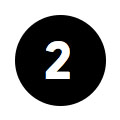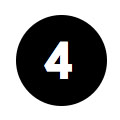In this age of TED talks and Gladwellisms, would-be social science sages are always on the lookout for ways to make their big, counter-intuitive ideas feel relevant to everyday life. And the holy grail on this front is, apparently, being able to show how your special insight about statistics, psychology, or economics can help people win game shows. The first chapter of James Surowiecki’s 2004 bestseller The Wisdom of Crowds boils down the book’s central thesis to a strategy for winning Who Wants to Be a Millionaire. Charles Wheelan’s 2013 book Naked Statistics explains how an understanding of probability unlocks a key secret to the old show Let’s Make a Deal. And a spate of recent articles online, including in Slate, have obsessively outlined how game theory can help contestants win The Price Is Right and Jeopardy!
In fact, this year’s most ballyhooed Jeopardy! contestant, Arthur Chu, became famous for using game theory to crack the show’s code. It turns out there has been quite a bit of research on game shows. Here’s some of it. You can thank us when you collect your winnings.
DON’T GO FOR BROKE

The foolish bettor is often motivated by disappointment. You were so close to winning a million dollars on Deal or No Deal, but now the maximum you can win is only $50,000, and the bank is offering you even less, only $20,000, as a buyout. So you keep playing in the unlikely hope of that $50,000 “consolation.” It’s a money-losing psychological pitfall, and according to a 2008 study by economists at Erasmus University Rotterdam, game show participants are especially vulnerable to it. “In the context of a game that commences with an average prize of hundreds of thousands … amounts of thousands or tens of thousands may seem small and are probably relatively easily put at risk in an attempt to escape from the uneasy feelings of experiencing a loss,” write the authors. Those “uneasy feelings” are leading you astray. Don’t get so thrown off by setbacks that you get desperate or fatalistic. You’re better than that. Respect yourself.
—Guido Baltussen, Thierry Post, and Martijn J. van den Assem, “Risky Choice and the Relative Size of Stakes,” New Insights Into Behavioral Finance, Rozenberg Publishers, 2008
IGNORE YOUR GUT—AND POSSIBLY YOUR HEAD

For an example of the power of ignoring your gut, look no further than the phenomenon known as the Monty Hall problem, alluded to in our introduction. It’s a brainteaser named after the original host of Let’s Make a Deal. Here is the scenario: You have three doors in front of you. Behind one door is a car. Behind each of the other two is a goat. You pick one door, but before it is opened, Monty Hall opens one of the two remaining doors to reveal a goat. Should you switch your choice of door? Intuition says it makes no difference. But, as University of California-Berkeley biostatistics guru Steve Selvin established in a letter to the editor in The American Statistician in 1975, your gut is wrong. You will double your odds of winning the car if you change your choice of door. The reasons this is true—and simulations bear out the theory—are hard enough to understand that we shall not attempt to explain them in 200 words. Countless papers touching on the Monty Hall problem have been written, and bitter mathematical debates started, in the years since Selvin got the ball rolling. But as upset as the Monty Hall problem seems to make people, no goats have, to our knowledge, sustained any related injuries.
—“A Problem in Probability,” by Steve Selvin, in Letters to the Editor, The American Statistician, Vol. 29, No. 1, February 1975
WHEN GIVEN THE CHANCE, TRUST THE MASSES

If you want to feel optimistic about democracy, consider this: Even know-nothings, collectively, seem to know something. This became the thrust of James Surowiecki’s argument in The Wisdom of Crowds. One example he uses is that of the game show Who Wants to Be a Millionaire, on which contestants faced multiple-choice questions for ever-higher stakes. If a contestant got floored by a question and needed help, he or she had the choice of placing a call to an expert acquaintance or polling the studio audience. So who was the wiser counselor? “The ‘experts’ did OK, offering the right answer—under pressure—almost 65 percent of the time,” Surowiecki reported. “But they paled in comparison to the audiences. Those random crowds of people with nothing better to do on a weekday afternoon than sit in a TV studio picked the right answer 91 percent of the time.” Some caveats apply. The biggest is that no one, Surowiecki included, considers the results of this back-of-the-envelope study to be scientific. Still, even seeming ignoramuses in a TV studio often know more, collectively, than your brainy Uncle Finley. So stop being a snob. Consider joining the people.
—James Surowiecki, The Wisdom of Crowds, Doubleday, 2004
ASSUME YOUR FELLOW CONTESTANTS WILL BE FOOLISH AND PLAN ACCORDINGLY

In a land of dumb contestants, the slightly less dumb contestant is king. So if, for example, you participate in the show The Price Is Right, do not do as your fellow contestants do. (This might seem to contradict our praise of crowds above—but a handful of adversarial contestants under pressure does not a wise crowd make.) Economists like to assume, for modeling purposes, that people make rational decisions. In reality, many of our decisions exemplify what the late economist Herbert A. Simon called “bounded rationality,” a nice way of saying that real-life people are at the mercy of limited information and brainpower. And this apparently applies all too directly to game show participants. As a group of researchers wrote in a 1996 study in The American Economic Review, “Our results indicate that rational decision theory cannot explain contestant behavior on The Price Is Right,” on which contestants consistently make choices that are “transparently suboptimal.” Therefore, contestants with “superior computational resources” are wise to keep suboptimal behavior in mind “when forming their strategies.” Look, we didn’t say our advice would be polite. But are you playing to make friends or make money?
—Jonathan B. Berk, Eric Hughson, and Kirk Vandezande, “The Price Is Right, But Are the Bids? An Investigation of Rational Decision Theory,” The American Economic Review, Vol. 86, No. 4, September 1996
DON’T TRY TO BE LOVED

Among many aficionados of Jeopardy!, the trivia quiz show, Arthur Chu, a 30-year-old insurance analyst, became an object of contempt and loathing earlier this year. Resolutely money-focused and impervious to public opinion, Chu stolidly employed game theory to win match after match in early 2014, taking questions out of the customary order (making the viewing experience disorienting), knocking Daily Doubles out of play, and regularly interrupting the show’s host (in order to keep the money coming faster). The result? $297,200 in total winnings. But do not credit Chu with genius. His inspiration came from searching online for winning strategies and finding people like 2003 Jeopardy! College Championship victor Keith Williams, who maintains a website called The Final Wager—created to “make game theory accessible to people who are scared of math.” Visitors can find a detailed guide to wagering their money in the final round of Jeopardy! And do not get mad at Chu. “I would just say we are playing for really very high stakes,” Chu told Brooke Gladstone of public radio’s On the Media. “I can’t justify to myself or my wife leaving money like that on the table out of some aesthetic sense.” Spoken like a true game show careerist. Now you can be one, too.
—Keith Williams, thefinalwager.co
Five Studies is Pacific Standard’s biweekly column that identifies and analyzes the best academic research to deliver new insights on human behavior.
This post originally appeared in the May/June 2014 issue of Pacific Standardas “Game Theories.” For more, subscribe to our print magazine.




